Nazi hunter Efraim Zuroff keeps tracking down war criminals
The Baltimore Post-Examiner interviewed Efraim Zuroff, Director of the Simon Wiesenthal Center’s Israel office & Eastern European Affairs division and Coordinator for Nazi crimes research worldwide. Zuroff, American by birth, emigrated to Israel in 1970 after receiving a B.A. in History from Yeshiva University in New York City. He also possesses an M.A and a Ph.D in Holocaust Studies from Hebrew University in Jerusalem. Zuroff is considered the world’s preeminent Nazi hunter (after the late Simon Wiesenthal) and in 2009, wrote Operation Last Chance: One Man’s Quest to Bring Nazi War Criminals to Justice.
BPE: As a young man you decided to leave the U.S and relocate to Israel. What motivated you to make such a bold decision?
ZUROFF: I grew up in a very Jewishly committed home in NYC, attended Jewish day schools, and then Yeshiva University. In the wake of the Six Day War, I felt that I wanted to live in a Jewish country and devote whatever talents I had towards making a contribution to Israel. From my perspective, living outside of Israel was like was buying a ticket to a basketball game and living in Israel was like being on the court as a participant rather than a spectator. I also spent a year abroad at Hebrew University as a junior and decided to continue my education at that institution after graduating from Yeshiva.

BPE: Did you study the Holocaust while attending Yeshiva or Hebrew University?
ZUROFF: It wasn’t until my later years at Yeshiva that I took a course on the Holocaust. Keep in mind that I graduated from Yeshiva in 1970, and it was not until several years later that Holocaust studies really began to flourish. At Hebrew U. I earned an M.A and a Ph.D in Holocaust Studies.
BPE: Did any of your relatives perish in the Holocaust?
ZUROFF: The irony is that very few of my relatives were killed in the Holocaust since three of my four grandparents emigrated to United States prior to the First World War. My grandfather actually came to Baltimore, so technically I’m from a Baltimore family. I was named after my mother’s uncle who was killed in Lithuania along with his wife and two children during the Nazi occupation. Many years ago, I met a man who knew him and who had studied with him at Radin Yeshiva. And this man told me that my great uncle had been kidnapped by a group of Lithuanian vigilantes who had been targeting religious Jews and was taken to Lukoskis prison in Vilna. The assumption is that he was later murdered in Ponar (location of mass execution).
BPE: The Lithuanians were among the worst of Nazi collaborators were they not?
ZUROFF: There is no question that thousands of Lithuanians were active and zealous participants in the mass murder of Jews. And unfortunately the collaboration with the Nazis and participation in mass murder encompassed all strata of Lithuanian society from the intelligentsia to doctors, lawyers, school principals, and hooligans. This is something that Lithuanians have had enormous trouble dealing with and acknowledging.
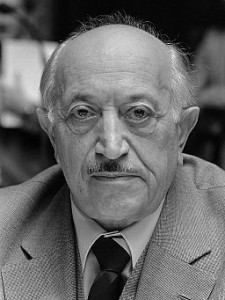
BPE: Understood. Now shifting back to you… In 1978 you returned to the U.S to assume the position of Academic Director at the Simon Wiesenthal Center in Los Angeles. Could you describe your work there during that time?
ZUROFF: I was in charge of setting up the archives, library, and helped plan the museum. I had already obtained my M.A. in Holocaust Studies and just had my doctoral topic approved and was gathering documentation, when Rabbi Marvin Hier (the center’s founder) offered me a job. While working there, I became acquainted with Simon Wiesenthal and the topic of Nazi war criminals. So rather than focusing on the dissertation, I devoted most of my time to chasing war criminals. It wasn’t until 1997 that I finally got my doctorate, but in the meantime I felt that I was doing something more important.
BPE: Two years later you returned to Jerusalem where you worked in conjunction with the U.S Department of Justice’s Office of Special Investigations (an agency dedicated to investigating Nazi war criminals living in the United States). What were your responsibilities there?
ZUROFF: I was the sole researcher for OSI in Israel and I had convinced them that there was a tremendous amount of material in Israel, as well as a large community of Holocaust survivors, both of which could be utilized in bringing about cases against Nazi war criminals.
BPE: In 1986, you became Director of the Wiesenthal Center’s Israel office & Eastern European Affairs division and Coordinator for Nazi war crimes research worldwide, a position you currently occupy. Given that your jurisdiction is largely relegated to Eastern Europe, explain the significance and political implications involved in tracking down war criminals living in these nations, particularly the Baltics, in light of the fact that they have only been independent for slightly over two decades?
ZUROFF: My responsibility is not limited to Eastern Europe. I handle all of the center’s Nazi war crimes investigations. But it’s true, as you said, that a lot of my work focuses on Eastern Europe because after the dissolution of the USSR, these nations became democratic and were now in position to prosecute their own nationals who had collaborated with the Nazis.
Under Soviet rule, many of these individuals had been prosecuted, but that was under a Communist regime, and now these countries were in a better position to face their wartime histories; primarily active and zealous participation in the mass murder of Jews.
At the same time, this was a very formidable task because there was very little political will to pursue it. Understandably, many of these countries prefer to focus on the victimization they experienced under Communism, rather than own up to their collaboration with the Nazis.
Collaboration was different in Eastern Europe, because it included participation in the mass murder of Jews and others as opposed to serving as an accessory to such crimes. It is also important to realize that in the occupied territories of the Soviet Union, murder was usually carried out via mass shootings and rarely included the use of death camps or gas chambers.
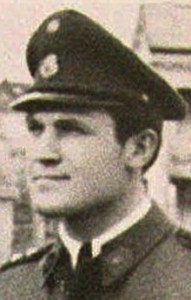
BPE: In 1998, you facilitated the arrest and prosecution of Dinko Sakic, commandant of Jasenovac, a concentration camp in Croatia. Sakic, who had fled to Argentina, allegedly with the help of the Catholic Church, previously made an ill advised decision and agreed to interview with a journalist at his home outside of Buenos Aires, breaking more than fifty years of silence. Explain the extent of Sakic’s crimes at Jansenovac as well as those of the Ustache?
ZUROFF: When the Nazis occupied Yugoslavia in April of 1941, they and the Italians set up an independent state of Croatia, which included what is today Croatia and most of Bosnia-Herzogovina. And they handed over the reigns of power to the Ustache, a fascist regime led by Anton Pavlic.
The Ustache were notoriously anti-Serb, anti-Semitic, and anti-Roma and therefore decided to setup concentration camps to get rid of those groups. The most notorious of which was Jasenovac, often referred to as the “Auschwitz of the Balkans.” At Jasenovac, many Serbs, Jews, Roma, and anti-Fascist Croats were sadistically murdered with knifes, swords, grenades, rifles, and other weapons invented by the Ustache.
Murder was often carried out on an individual basis, and because there were no gas chambers or gas vans, Jasenovac is not classified as a death camp, unlike its Polish counterparts: Auschwitz-Birkenau, Treblinka, Sobibor, Maidanek, Chelmno, Belzec.

Sakic was one of five commanders at the camp, but in 1944 became lead commander. Therefore, he was responsible for murders carried out under his command. After exposing him (the journalist was sent by the Wiesenthal Center) and helping to facilitate his extradition, we faced a dilemma over whether to send him to Serbia or Croatia. Sakic was and still is regarded by many Croats as patriot who fought against the Communists, so if the trial was held in Serbia, it would have been easier to secure a conviction. However, we decided that Croatia was in greater need of being reminded of the atrocities that occurred at Jasenovac, so it was decided to send him there. [Sakic was convicted in October 1998, sentenced to twenty years, but died in 2008].
Now, to illustrate a point… Shortly after Sakic’s arrest, my wife and I went to Zagreb, during which time Croatia defeated Germany in the World Cup. While attending the celebrations, we saw several young men marching towards us, holding what appeared to be either Croatian or Ustache flags (the two look similar) shouting at the top of their lungs: “DINKO SAKIC, DINKO SAKIC!” That is an experience I will never forget.
BPE: That is disturbing. Many historians have noted that the Ustache guards at Jasenovac were so brutal that SS leader Heinrich Himmler actually urged them to show restraint, is this true?
ZUROFF: There is no question that even the Germans were appalled by the cruelty of the Ustache. I’m not sure if Himmler gave them any orders, but the Germans were shocked by what they saw. By the way, there were no Germans at Jasenovac, the camp was solely run by the Ustache.
BPE: There were no SS personnel at the camp?
ZUROFF: None whatsoever. The Croatians were so zealous in their cruelty, that there was no need for them.
BPE: In 2002, you spearheaded Operation Last Chance in conjunction with Aryeh Rubin, in an effort to bring aging war criminals to justice. How does this program work and has it been successful?
ZUROFF: The idea behind Operation Last Chance originated with Aryeh Rubin’s. Aryeh is a philantrophist active on behalf of Jewish issues & education and he advised me that the center should be more proactive in obtaining information that would help locate and facilitate the prosecution of such individuals and that it might be a good idea to offer financial compensation in exchange for such information. I came up the with name Operation Last Chance (and later wrote a book about it) and the Wiesenthal center was entrusted with the responsibility for carrying out the mission.
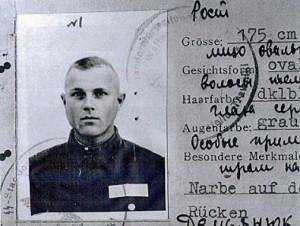
We started in Eastern Europe because we felt that after the breakup of the Soviet Union, it would be important to try Nazi war criminals in those countries, and compensation started at $10,000. First came the Baltics, then Romania, Poland, Austria, Hungary, Germany, and Croatia. It would eventually extend to Norway and as far away as South America.
In 2010, we re-launched the campaign in Germany, because of changes in policy that allowed for the prosecution of war criminals solely based on their service at a death camp. Prior to that change, prosecutors had to identify specific victims and crimes, which could be very difficult.
The first person brought to trial under the new policy was none other than Ivan Demjanjuk (former death camp guard who was living as a retired auto worker in Cleveland, Ohio). [In 2011, Demjanjuk was found guilty of 30,000 counts accessory to murder in a Munich court and sentenced to five years, but died while appealing his conviction].
Also, about a year and half ago, we launched a successful poster campaign in Berlin, Hamburg & Colonge, with two-thousand billboards designed to encourage individuals to come forward with information that could be used to locate and facilitate the prosecution and conviction of Nazi war criminals who remained at large.
BPE: How would you respond to the assertion some have made that prosecuting elderly men who are on death’s doorstep is either cruel or inhumane?
ZUROFF: The passage of time in no way diminishes the guilt of the killers. Old age should not protect people who committed such heinous crimes. We owe it to the victims to find the people who victimized them. Each new trial raises public awareness about the Holocaust and sends the message that these individuals will still be held accountable for their crimes. They also help in the fight against Holocaust denial and distortion. Furthermore, these are the last people on earth who deserve any sympathy, because they had no sympathy for their victims, some of whom were even older than they are today.
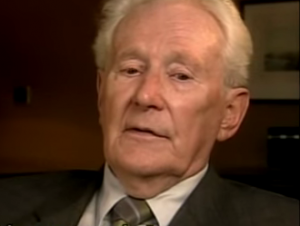
BPE: Let us to turn our attention to Oscar Groening, the man often described as the “bookkeeper” or “accountant” of Auschwitz. Last September, Groening, 93, was charged with 300,000 counts of accessory to murder and will stand trial in Lueneburg, Germany later this month. Despite being an unrepentant Nazi, should Groening receive some degree of leniency if convicted since he has gone on the record challenging and repudiating Holocaust deniers?
ZUROFF: Yes it should be considered but it doesn’t free him from being prosecuted and punished in some way, shape, or form. However, it is worth noting that he is the only Nazi war criminal I can remember that has actually acknowledged Holocaust crimes, but he did not acknowledge any guilt. Groening has continually stated that he is totally innocent and that is not exactly the case.
BPE: Any predictions on Groening’s fate?
ZUROFF: Assuming he doesn’t die or become sick during the trial, the process should reach its conclusion and he should be convicted.
BPE: Groening’s tenure at Auschwitz directly corresponded with the deportation of Hungary’s Jewish community in the summer of 1944. During this period, the western allies landed at Normandy and France would soon be liberated. Germany would surrender in less than a year. With all that going on, why did the Nazi’s insist on deporting Hungary’s Jews and how had Hungarian Jewry avoided the fate of their cohorts in neighboring countries for so long?

ZUROFF: Because of their fanatic determination to murder the Jewish people-and the realization that they were going to lose the war- the Nazis rationalized that they might as well murder the Jews. They also diverted material from the battlefield in order to accomplish this objective. The reason Hungary’s Jews temporarily avoided the fate of their neighbors was because the Germans did not see a need to occupy Hungary since she was their ally. However, in March 1944, the Germans changed their mind after learning that Admiral Miklos Horthy, Hungary’s leader, planned to split from the Axis powers and join the Allies. The deportations to Auschwitz began shortly after.
BPE: What is the appropriate response from educators and world leaders when Holocaust denial rears its head and what message would you impart to young people who may be apathetic or entirely ignorant regarding the circumstances of that period?
ZUROFF: It is important to note that today Holocaust denial is primarily a problem in the Muslim world, not the Western World. The good news is that the fight against Holocaust denial in the West has largely been won, although it still exists in pockets. But in the Muslim world, Holocaust denial is usually government sponsored, making it even more dangerous. This is one of the reasons why anti-Semitism is so prevalent in the Arab world.
As far as young people are concerned, it is important for them to understand that the Holocaust is a human tragedy. It was not a natural disaster and therefore did not have to happen. The Holocaust represents the height of man’s inhumanity to his fellow man. It is also important to understand that remembering the Holocaust is important for everybody, not just Jews. While Jews were the Nazis primary victims, they were not the only victims.
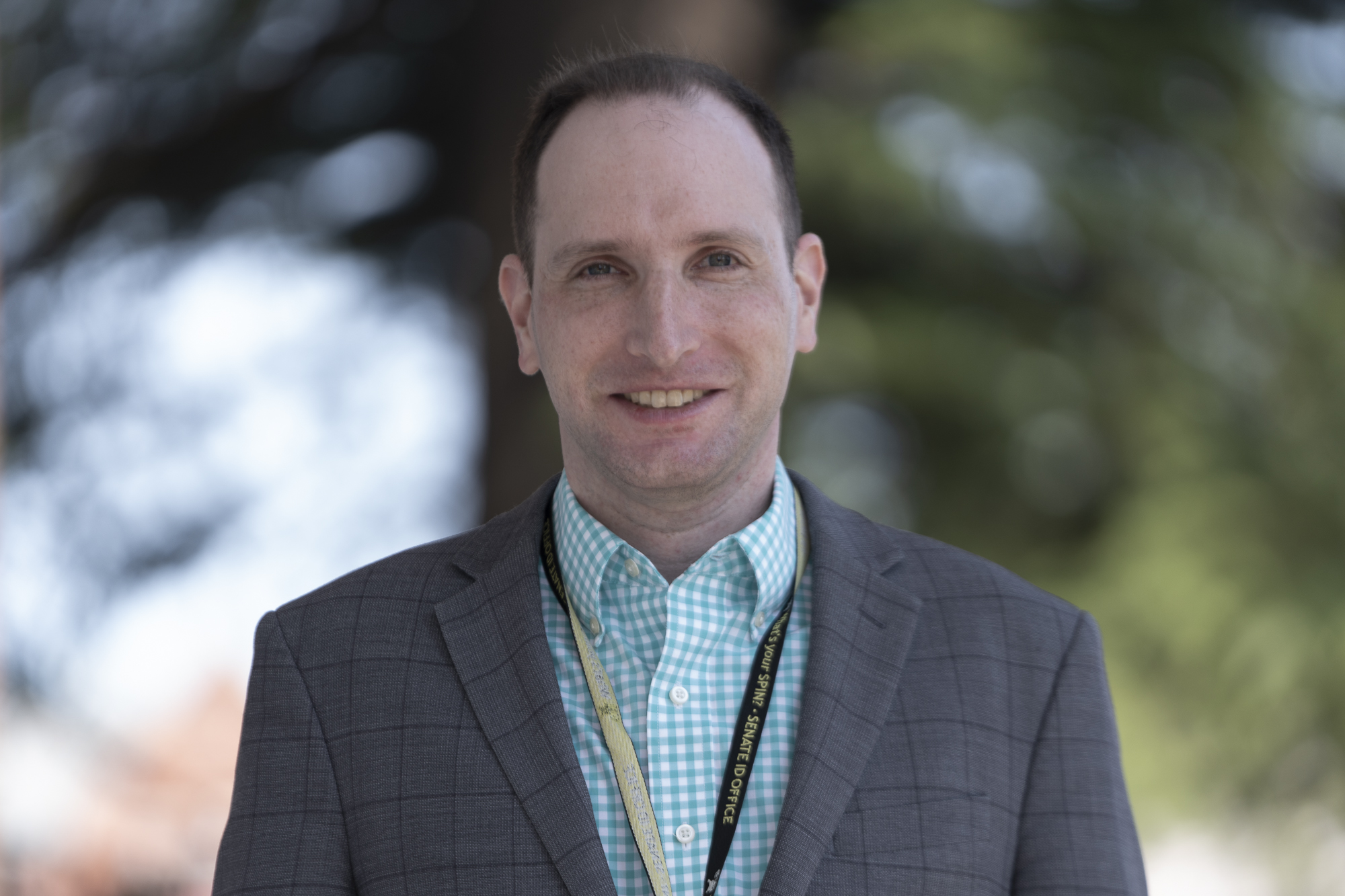
Bryan is the managing editor of Baltimore Post-Examiner.
He is an award-winning political journalist who has extensive experience covering Congress and Maryland state government. His work includes coverage of the first election of President Donald Trump, the confirmation hearings of Supreme Court Justice Brett Kavanaugh and attorneys general William Barr and Jeff Sessions, the Maryland General Assembly, Gov. Larry Hogan, and the COVID-19 pandemic.
Bryan has broken stories involving athletic and sexual assault scandals with the Baltimore Post-Examiner.
His original UMBC investigation gained international attention, was featured in People Magazine and he was interviewed by ABC’s “Good Morning America” and local radio stations. Bryan broke subsequent stories documenting UMBC’s omission of a sexual assault on their daily crime log and a federal investigation related to the university’s handling of an alleged sexual assault.

March 1944: The Germans “realize they’re going to lose the war,” and be invaded and occupied, so they frantically go about effacing the massive evidence of their enormous genocide project. While they’re doing this (AND trying to stave off the unthinkable), they gather up 400,000 MORE Jews (from Hungary) and ADD them to all that evidence they’re trying to get rid of.
DO you know any Germans THAT stupid? I know quite a few non-Germans who are stupid enough to believe the blather in the first paragraph of this comment. I’m insulted when invited to believe it, myself.
LOL I dunno man, seems like you’re splitting a mighty fine hair between “stupid enough to murder tons of people” and “stupid enough to murder even more people”